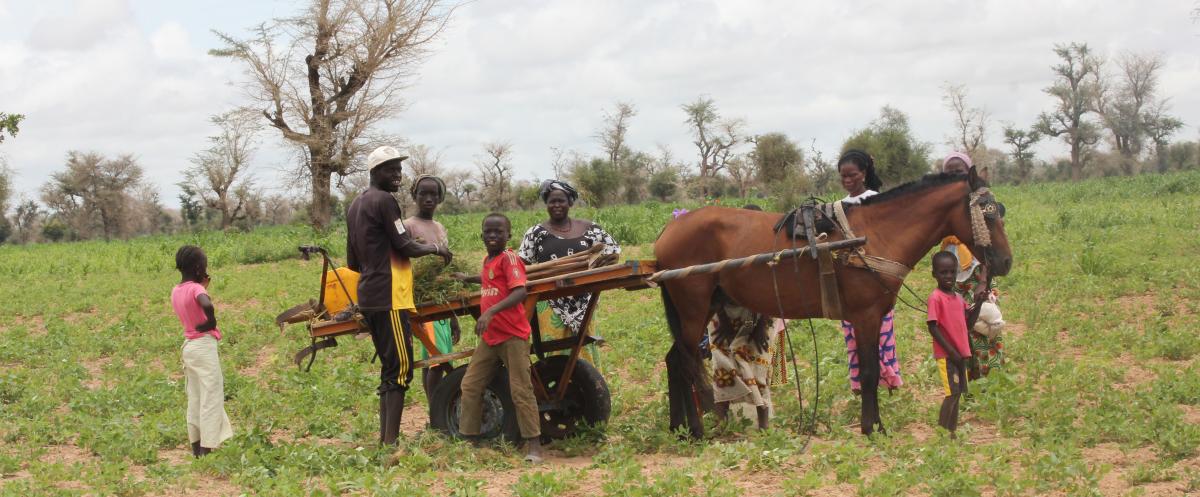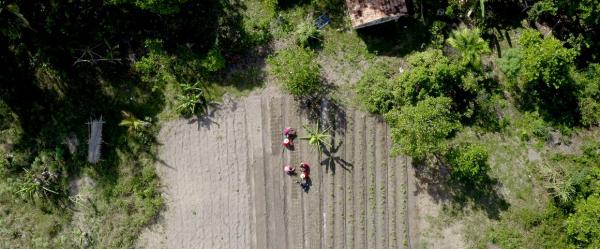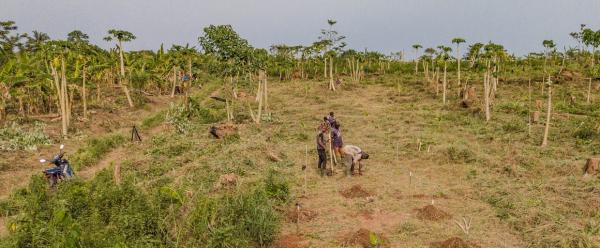Call to action 10 April 2024
- Home
- CIRAD news
- News
- Converging family farming and agroecology
Using agroecological practices to boost family farming

Public policies must include specific incentive measures associating family farming and agroecology Photo: T. Brévault, © CIRAD
They provide a living for more than 600 million households worldwide, and supply 80% of all the food produced. Family farms are often perceived as small-scale, subsistence farms, as opposed to modern, high-performance, commercial farms. However, this is very far from the truth. On the contrary, they play a vital role in global food security, as the predominant type of agricultural production on Earth.
Prioritizing "family" over economic criteria enables family farms to manage economic and climate disruption, albeit sometimes at the expense of their income, in order to preserve their means of production. They can also develop resilience mechanisms, to preserve the environment by making use of local know-how. The farmers involved generally have broad knowledge of the range of natural resources available to them, and use them in their production operations. This gives them unequalled flexibility and potential for resilience and innovation. Based on these criteria, the principles of family farms fit those of agroecology perfectly.
Family farming and agroecology are also labour- and knowledge-intensive production systems that have the potential to provide more work and agricultural jobs than conventional models. This argument makes the synergy between the two types of system a priority for sub-Saharan Africa, where almost 600 million young people are due to enter the job market between now and 2040, almost half of whom live in rural areas.
Lastly, family farms are an ideal focus for public policy, which means they need to be more clearly identified in agricultural statistics. Targeting is vital if public policy is to be effective. For instance, the agricultural revolution in France at the start of the 1960s centred on medium-sized farms. Family farms also proved to be of benefit to Brazil in the early 2000s, with targeted policies aimed at organizing public procurement, notably for school canteens, the army, etc. This type of targeting could easily be envisaged for incentive measures combining family farming and agroecology.
This convergence between family farming and agroecology is a challenge for both our research communities and our development partners. For the advantages of family farming to be expressed fully, alongside those of agroecology, we need a social project, relayed and led by farmers' organizations, civil society as a whole, a critical number of politicians, and determined public policies.
CIRAD will be at the first Global Forum of the UN Decade of Family Farming, organized in collaboration with FAO and IFAD. The forum is a great chance to invent more sustainable agrifood systems. It is up to us to boost and institutionalize the convergences between the potential of family farms and that of agroecological transitions.
CIRAD will be participating via one of its economists, Pierre Girard, who will be contributing to the following session: "Develop an enabling policy environment to strengthen family farming", on 19 September.
He will be the lessons drawn from the technical dialogue on the political implementation of the family farming concept, held last July.
Global Forum of the UN Decade of Family Farming website.


























